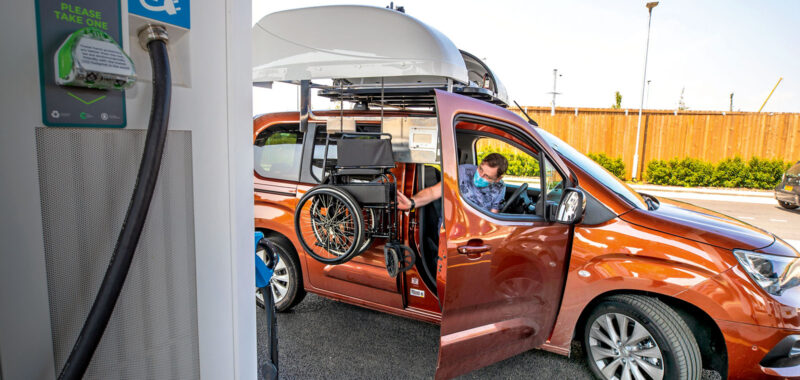Elsewhere, and in advance of the standard’s publication in 2022, charging company Osprey launched what it claimed was the UK’s first accessibly designed rapid-charging hub. It followed this with improvements to its existing compact and hub sites that included creating larger bays, removing kerbs and installing more accessible hardware.
The opening of another accessible charging site, especially given the size of Instavolt’s 44-acre Superhub in Winchester, is good news for EV owners and future buyers, but it bears out another concern expressed by the Public Accounts Committee: the geographic disparity of charging facilities. The report said London and the south-east alone host 43% of all UK charge points.
Meanwhile, it said, major roads in England’s southwest and in the north lack sufficient rapid-charger points, while it continues to be less commercially viable for charge point operators to serve rural areas.
“This raises concerns around regional divides and inequalities for different groups of drivers. Without action, it risks being baked into the rollout of charge points,” said the report.
The dominance of London and the south-east is also reflected in the distribution of the UK’s 15,000 rapid and ultra-rapid chargers. According to Zap-Map, by the end of February the region was home to around 3500, compared with major regions including the north-west and the West Midlands with around 1500 rapid and ultra-rapid chargers each. The north-east had barely more than 500.
Another concern raised by the report is that, as of January, approximately one-third of the UK’s 117 motorway service stations had yet to meet the DfT’s target of having six or more ultra-rapid chargers. “Charge points need to be installed in advance of need,” noted the report.
It suggested the shortfall might be explained by the fact that not one penny of the DfT’s Rapid Charging Fund (RCF), which was created five years ago to help finance grid connections on the strategic road network and is worth £950 million, has yet been spent.
ChargeUK, the organisation representing charging companies, welcomed the report but claimed that charger rollout was actually running ahead of demand. CEO Vicky Read said members wanted to increase the pace of installations but faced “delivery barriers”.

